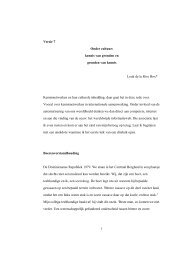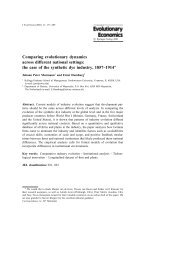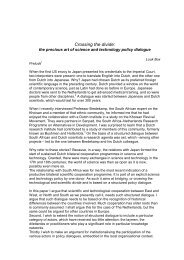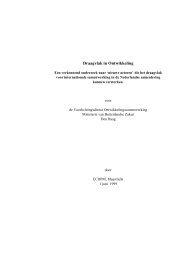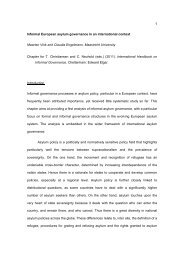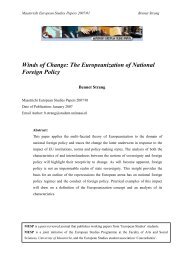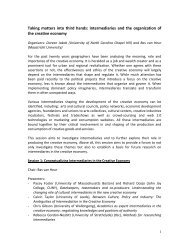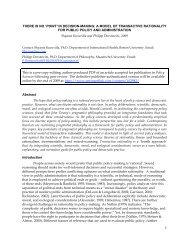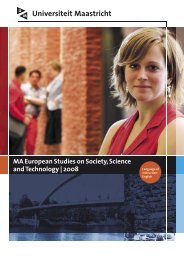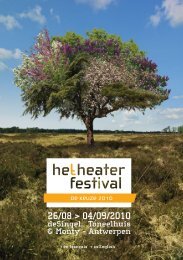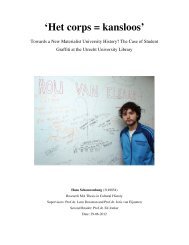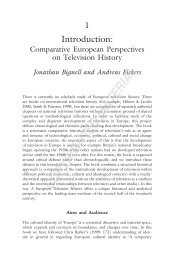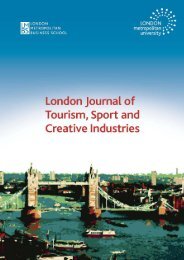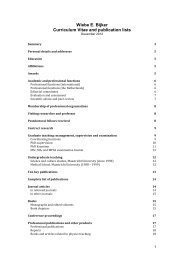Download paper - Maastricht University
Download paper - Maastricht University
Download paper - Maastricht University
You also want an ePaper? Increase the reach of your titles
YUMPU automatically turns print PDFs into web optimized ePapers that Google loves.
<strong>Maastricht</strong> European Studies Papers 2007/07 L. Unbehauen<br />
Since the Bologna Declaration in 1999, there have been regular ministerial conferences<br />
every two years. The 2001 conference in Prague issued the so-called Prague Communiqué<br />
which added three additional elements of importance to the original core objectives.<br />
7. Lifelong learning<br />
The idea of lifelong learning has been emphasized in order to counter the challenges of<br />
competition and to promote the use of new technologies and the greater social cohesion.<br />
This also includes the recognition on vocational training and the focus on media skills<br />
(Prague Communiqué, 2001).<br />
8. Higher education institutions and students<br />
Here the need to involve universities and students as active and knowledgeable partners<br />
when conducting European-wide education policy is acknowledged. Furthermore, it is<br />
stated that students should participate and shape the organizational structures and content<br />
of higher education institutes because they are the first to be concerned by these issues<br />
(ibid). Thus, in the Prague Communiqué the active involvement of the European<br />
<strong>University</strong> Association (EUA, before named CRE) and the National Unions of Students in<br />
Europe (ESIB) as consultative members of the BFUG has been established.<br />
9. Promoting attractiveness of the EHEA (transnational education)<br />
According to the members of the Bologna Process it is important to make the profile of<br />
the EHEA more attractive for students from Europe and worldwide (ibid). In order to<br />
improve the comparability of European higher education degrees in other parts of the<br />
world, a common framework of qualifications and a coherent quality assurance and<br />
accreditation mechanism have to be developed to stay competitive in regard to other<br />
educational players such as the USA. The rationale is that as soon as ‘knowledge made in<br />
Europe’ becomes a recognizable label of qualification, it will be also draw students and<br />
high-skilled workers from all over the world.<br />
At the ministerial summit in Berlin in September 2003, a 10 th action line, namely the<br />
emphasis on doctorial studies (as the third educational cycle) and the synergy between the<br />
EHEA and the European Research Area (ERA) has been promoted. Moreover, three<br />
immediate priorities were singled out that were the most pressing and needed the greatest<br />
attention in the up-coming two years. These were: quality assurance (QA), the two-cycle<br />
8



